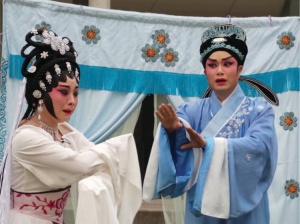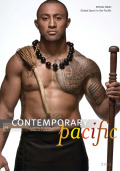The Geographer’s Eyes and Feet
Michael Schmandt, 13
Author: pwilson6
Asian Theatre Journal, vol. 31, no. 2 (2014)

Special Issue on Global Encounters in Southeast Asian Performing Arts
Guest Editor: Matthew Isaac Cohen with the assistance of Kirsten Brockman, Chua Soo Pong, Catherine Diamond, and William Peterson
From the Editor, iii
ARTICLES
Introduction: Global Encounters in Southeast Asian Performing Arts
Matthew Isaac Cohen, 353
Long considered an isolated backwater of global cultural flows, a proud possessor of artistic traditions seemingly immune to international fashions, Southeast Asia is now coming into its own as a cultural powerhouse, refashioning old traditions and taking on new forms and ideas, with connections being rapidly formed between ASEAN member states in anticipation of the region’s Economic Community in 2015. This introduction positions this volume’s articles and the World Symposium on Global Encounters in Southeast Asian Performing Arts, where they were presented, in relation to the region’s cultural shifts. It argues that the critique and subversion of tradition is a sign of its vitality and future viability. A new paradigm is emerging in which Southeast Asian theatre and performance are not being treated as the West’s exotic “Other” or in relation to nation building but as a site drawing interested parties into a conversation regarding both local and global issues..
Continue reading “Asian Theatre Journal, vol. 31, no. 2 (2014)”
The Contemporary Pacific, vol. 26, no. 2 (2014)
Global Sport in the Pacific
Guest edited by Fa’anofo Lisaclaire (Lisa) Uperesa and Tom Mountjoy
About the Artist: Greg Semu, viii-553
ARTICLES
Global Sport in the Pacific: A Brief Overview
Fa‘anofo Lisaclaire (Lisa) Uperesa and Tom Mountjoy, 263
Abstract: In recent decades, sport has become an increasingly important path of mobility for Pacific Islander men, positioning them within interlinked local, state, regional, and global sporting economies. Players from the Pacific (particularly in rugby, rugby league, soccer, and gridiron football) have become icons through their sporting prowess, not only within Oceania but in Japan, the United States, and throughout Europe as well, as new markets have opened up through professional and semi-professional sport. Yet this movement continues to take place within the fragile context of the spread of globalized media, transnational capital investment, and development initiatives throughout the region. This introduction to global sport in the Pacific considers the complicated realities of and links between modern, highly commercialized team sports that have facilitated both the rise of global sport in the Pacific and the rise of the Pacific in global sport. Focused on key themes of agency and mobility; development and discipline; indigenization, embodiment, and ethno-nationalism; and polyvalent imaginaries, the contributions to this special issue explore how and why sporting practices have become closely linked to various economic, political, and social processes that shape possibilities for everyday life across the Pacific and beyond.
Keywords: sport, mobility, globalization, commoditization, ethnography
Continue reading “The Contemporary Pacific, vol. 26, no. 2 (2014)”
Asian Perspectives, vol. 52, no. 1 (2013)
Special Topic Articles: New Research on Old Museum Collections
ARTICLES
New Research on an Old Collection: Studies of the Philippine Expedition (“Guthe”) Collection of the Museum of Anthropology, University of Michigan
Carla M. Sinopoli, 1
This article introduces recent studies on an important collection of Southeast Asian archaeological materials curated by the Asian Division of the University of Michigan Museum of Anthropology. The Philippine Expedition or Guthe Collection derives from archaeological research conducted at more than 500 sites in the southern and central Philippines in the early part of the last century—from 1922 to 1925. The collection consists of some 13,000 objects from some of the earliest systematic archaeological research in Southeast Asia. For more than 80 years, scholars from the Philippines, China, Japan, Europe, and North America have visited the collection to study the materials and ask new questions about the Southeast Asian past. The articles here continue this trajectory by presenting recent research on early modern trade in blue-on-white porcelains; technological style and the classification of large stoneware dragon jars; the cultural context of cranial deformation; and a sourcing study of indigenous earthenware ceramics using instrumental neutron activation. In this article, I provide some background on the Philippine Expedition and the remarkable museum collection that it generated, as well as some of this research, which continues to mine new knowledge from this nearly century-old museum collection.
Keywords: Philippines, colonial archaeology, museum collections, Carl Guthe, Chinese porcelain, dragon jars, earthenware, cranial deformation, colonialism
Continue reading “Asian Perspectives, vol. 52, no. 1 (2013)”
Asian Perspectives, vol. 51, no. 2 (2012)
ARTICLES
Landscapes of Inequality?: A Critique of Monumental Hierarchy in the Mongolian Bronze Age
Joshua Wright, 139
Khirigsuurs are stone monuments of variable scale and complexity that dominate the archaeological landscape of the Mongolian Bronze Age. Though there are countless typical-sized monuments, there are a few very large structures suggesting that a chiefly hierarchy directed their construction. Using measurements of size and formal complexity to compare these mega-monuments and khirigsuurs within fully surveyed areas this article argues that these monuments are not primarily tombs built to represent the social hierarchy of early nomadic pastoralists. Instead, they are monumental places created for living communities to communicate their organization and enduring nature to others and themselves. This communication was essential for early pastoralist communities to become established and survive.
Keywords: Mongolia, Bronze Age, monuments, pastoralism, heterarchy, collective action
Continue reading “Asian Perspectives, vol. 51, no. 2 (2012)”





